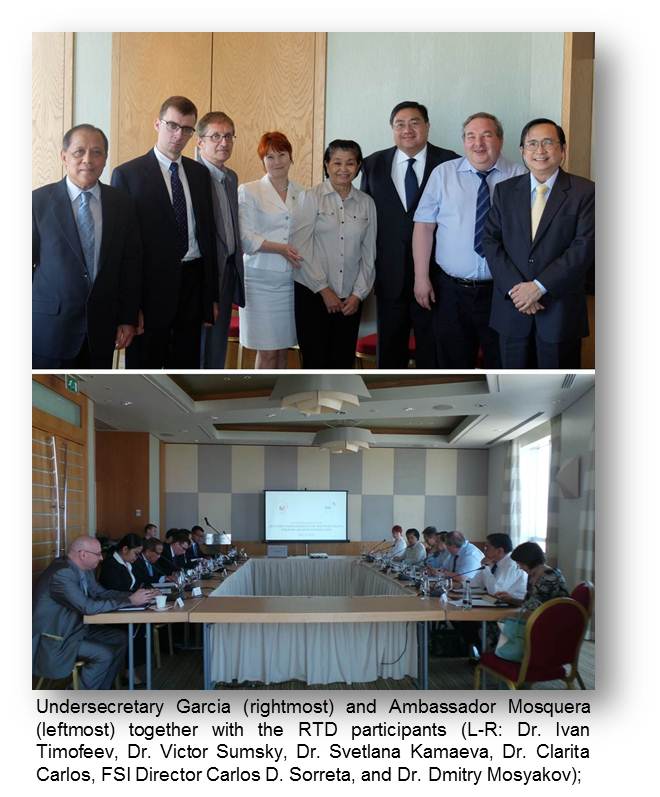
27 May 2014- Philippine and Russian foreign affairs officials and think tank experts exchanged views on security developments in the Asia-Pacific region at a roundtable discussion (RTD) held in Moscow last May 23.
The RTD, organized by the Philippine Embassy in Moscow and the Russian International Affairs Council (RIAC), tackled relevant issues concerning the evolving regional security environment in the Asia-Pacific as well as prospects for closer Philippines-Russia cooperation in the fields of economic development and security.
The participants engaged in an open and productive discussion on specific strategic issues such as the role of Russia and other major powers in regional security as well as pressing security challenges, especially the West Philippine Sea disputes. Both sides agreed on the importance of increased dialogue and cooperation among regional actors at various levels and fora as a means of maintaining regional peace and stability.
The RTD participants included Philippine Foreign Affairs and Embassy officials led by Undersecretary Evan P. Garcia, Ambassador Alejandro B. Mosquera, Assistant Secretary for European Affairs Maria Zeneida Angara Collinson, and Foreign Service Institute Director Carlos D. Sorreta, and security expert Dr. Clarita Carlos.
The Russian side was composed of officials from the Ministry of Foreign Affairs’ Third Asian Department, Mr. Aleksei Chernov and Mr. Dimitry Yudin, as well as prominent scholars and think tank experts namely, Dr. Ivan Timofeev (Program Director, RIAC), Dr. Dmitry Mosyakov (Director, Southeast Asia and Oceania Research Centre, Institute of Oriental Studies), Dr. Ekaterina Koldunova (Vice Dean, MGIMO University), Dr. Victor Sumsky (Director, ASEAN Centre in MGIMO University), and Dr. Yuri Raikov (Dean, Russian State Social University). Mr. Dmitry Kossyrev, a columnist from RIA Novosti, and Dr. Svetlana Kamaeva, Director of Transcor-K Company, also attended the event.
RIAC, the Embassy’s co-organizer, is a non-profit academic and diplomatic think tank founded in 2010 by the Russian Ministry of Foreign Affairs and the Ministry of Education and Science. It aims to serve as a “link between the state, scholarly community, and civil society in an effort to find foreign policy solutions to complex conflict issues”. END

